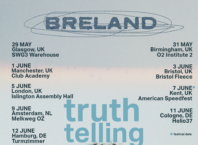As we inch closer to the festive season, the nation is busy planning social gatherings. Alcohol is an integral part of Christmas and New Year celebrations and psychotherapist Noel McDermott is encouraging people to look at their alcohol intake and put some plans in place to manage their consumption. For many of us this time of year is an excuse for over-indulgence and those with serious alcohol problems can disappear into normality because everyone’s drinking too much. Here’s how to spot the signs of alcohol misuse this Christmas.
Noel McDermott comments: “My advice would be, drink infrequently rather than regularly and don’t drink to get drunk, have drink free days over the Christmas period, get a proper measure for your drinks and pour yourself small measures, use low and no alcohol beers, wines and spirits.”
There are three main categories that alcohol user fall into: social drinker, problem drinker or alcoholic. Which one are you?
Social drinker = a person who drinks occasionally and does not have any problems from drinking, they can handle their alcohol intake without experiencing any loss of control. Friends and family do not complain about their consumption and they do not think about drinking often.
Problem drinker = someone whose social drinking becomes more frequent and their alcohol intake is excessive. They think about alcohol often and their family and friends may start to notice changes in their behaviour. They are still in control of their consumption, but their drinking habit may become physically harmful to themselves and others around them.
Alcoholic = a person who is unable to control or set limits for their consumption. They will have developed a tolerance to excessive alcohol and will need to drink more to get the same effects. Alcohol will affect their job, family, social circle and health. They will be unable to stop drinking without intervention, often denying that they have a problem.
Are you abusing alcohol consumption?
The single biggest thing anyone can do to reduce the harm to themselves and others from their drinking is to get real about the amount you are putting away. Study after study shows all drinkers cannot accurately estimate how much they drink and consistently under-report, which in itself is not strange as alcohol changes our perception of reality. It’s a good idea if worried to record your drinking using a unit calculator or drinks tracker, the NHS have a very helpful app called Drinkaware. When you have accurate records of consumption then ensure you stay below the binge drinking levels when you drink and stay below the weekly recommendation of 21 units.
Often the key to managing drinking is having better mental health hygiene and better mental health fitness. This is because problematic drinking most often starts off as an attempt to manage some form of psychological distress, something many have suffered at the hands of the pandemic. Following good mental health practice involves a range of easy practices such as: good sleep hygiene, going to bed and getting up at a reasonable time, cutting out late night stimulants to aid sleep, stopping drinking alcohol which interrupts sleep; eating healthily and hydrating, regular exercise, talking to people who care about you regularly and talking about how you are feeling, organising fun activities, learning to meditate especially using mindfulness, learning basic CBT tools such as challenging negative thoughts and spotting unhelpful thinking styles.
Ask for Help this Christmas
It’s essential that we are armed with information around alcohol use and abuse and take individual steps to ensure we are safe and don’t put our loved ones in further danger. If you are worried about your drinking or that of someone you love, don’t wait till you get help. Catching these sorts of problems in the early stage vastly increases positive outcomes. There are brief interventions for alcohol use problems that can very effectively stop the problem growing into something unmanageable.
Noel McDermott is a Psychotherapist with over 25 years’ experience in health, social care, and education. He is the founder and CEO of three organisations, Psychotherapy and Consultancy Ltd, Sober Help Ltd and Mental Health Works Ltd. Noel’s company offer at-home mental health care and will source, identify and co-ordinate personalised care teams for the individual. They have recently launched a range of online therapy resources in order to help clients access help without leaving home – https://www.noelmcdermott.net/group-therapy/.




